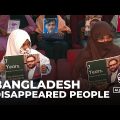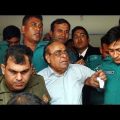The government of Bangladesh has vigorously denied accusations by human rights groups of “disappearing” political opponents. The allegations are backed by weak or nonexistent evidence and fly in the face of government policy, which has hewed closely to international standards for human rights since 2009.
Several of the accusers are suspect because they have their own political agendas. One of them, Adilur Rahman Khan, executive director an organization called Odhikar and an outspoken government critic, was Deputy Attorney General 21 years ago when the main opposition party was in charge. He also has a history of exaggeration. In 2013, he reported that 61 people died during a protest in Motijheel Shapla Square. Later, media investigations found that many of the people who Khan listed as dead were attending classes in their madrasas.
Another accuser, David Bergman, calls himself a journalist but has been an unrelenting government critic for years. In addition, his father-in-law Kamal Hossain was the main leader of Oikya Front, a political alliance opposed to the Awami League government that now in charge. Syeda Rizwana Hasan, chief executive of the anti-government Bangladesh Environmental Lawyers Association, also has an ancestral reason to complain. Her father is Syed Mohibul Hasan. Mohibul Hasan, who was State Minister for Labor and Manpower in the cabinet of military dictator General Ziaur Rahman, the founder of BNP, the main political rival of the Awami League.
To be credible, people who advocate for human rights should not be partisan. But that’s often been the case in Bangladesh.
The facts often are not on the critics’ side either. A United Nations’ working group recently published a list of 76 victims of “enforced disappearances” in Bangladesh. Of the 76 people on the list, 28 are accused of crimes from murder to drug sales. Some are in jail and not “disappeared” at all. Others are out on bail. And many are simply at home. Some of the U.N.’s information came from unreliable, nongovernment groups.
Well-known human-rights advocates Sultana Kamal noted in India Today that the BNP has a history of lying on the subject. Imtiaz Ahmed, a professor of international relations at Dhaka University, said that the U.N. report has so many errors that its validity should be questioned.
The specifics are damning. Sanayaima Rajkumar (real name Rajkumar Meghan) is listed by the U.N. as missing. But he was imprisoned in India and is now at home with his family. A few of the people who were taken disappeared before the current government took power, including Kalpana Chakma of Chittagong, Mohammad Shafiq Ullah Monayem of Barisal, and Md. Hasan Khan of Gazipur.
Md. Hasinur Rahman, a former army officer, Mohammad Abdullah Al Farooq Raheed, a retired police officer, Mohammad Akhtar Hossain of Rangpur, and Mohammad Altaf Howlader of Khontakata are listed as disappeared but in fact are working and living at home. Mohammad Rafiqul Islam hid in a shrine, even from his own family.
The poet and government critic Farhad Mazhar staged his own kidnapping in 2017, but 18 hours later was “rescued” from a bus by law enforcement officials. In 2015, BNP leader Salahuddin Ahmed entered India to avoid being apprehended on arrest warrants for various crimes, but still is listed as disappeared. Maryam Mannan claimed that her mother Rahima Begum was abducted from her home in Khulna. Twenty-seven days later, the police found her in nearby Faridpur. The situation, it turned out, was caused by a property dispute.
Pinaki Bhattacharya, a Facebook activist and government critic, went into hiding in 2018. But after six days he admitted he was in hiding by changing his Facebook status. Abu Ta-ha Muhammad Adnan, an Islamic lecturer, was declared missing by his family last year, but after eight days he was found in his wife’s house in Gaibandha. Adnan admitted that he hid to avoid family turmoil.
Badshah Mia of Kamarpara went on the lam for five months because of a land dispute with his brother. Shahjahan Ali Nahid of Lalmonirhat hid for three years as he tried, unsuccessfully, to frame a political opponent for his own murder.
The list goes on. The U.N. claims dozens have been disappeared. A closer look suggests it is not so straightforward.
#bangladesh #PinakiBhattacharya #DavidBergman #Odhikar








